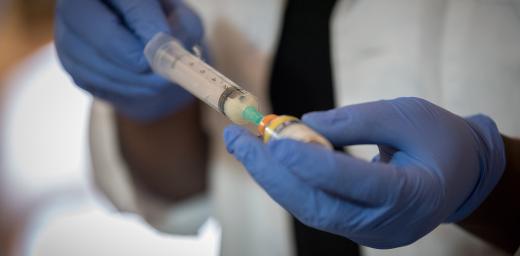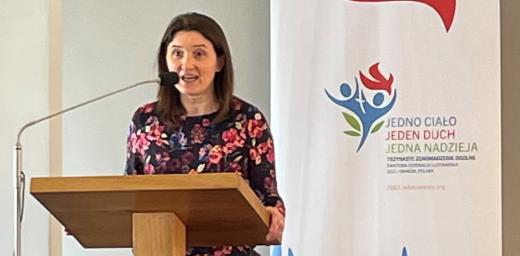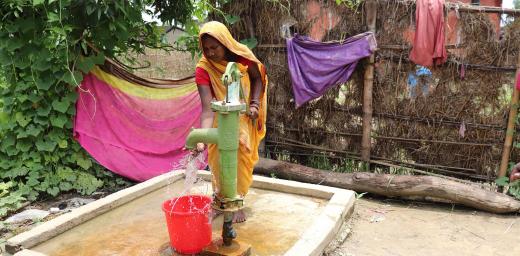COVID-19: An active contribution to overcoming the crisis
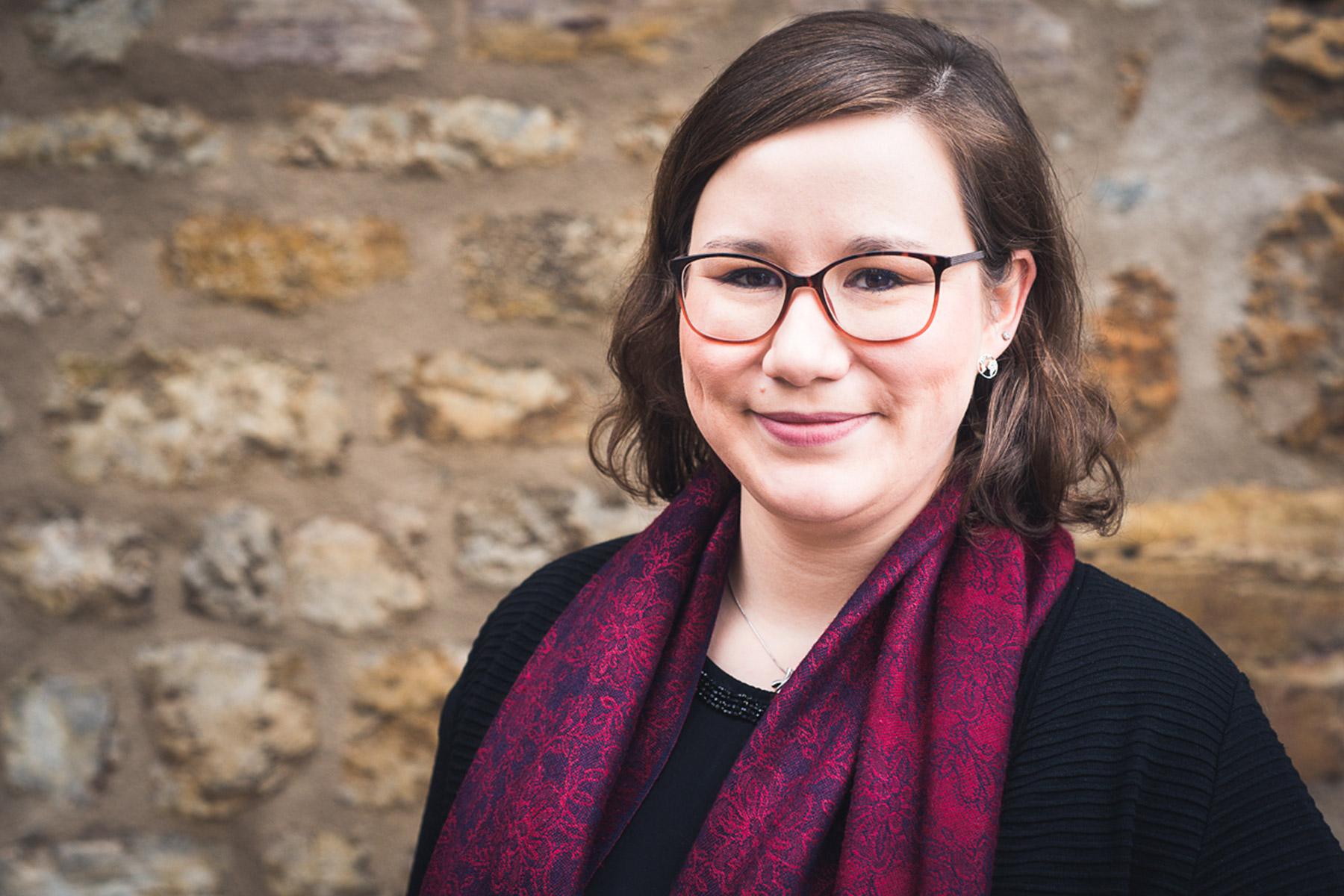
LWF Council member Julia Braband is a student of theology and a nurse. She volunteered to work in the COVID-19 isolation ward of a hospital in Erfurt, Germany. Photo: Christiane Claus Fotografie
LWF Council member Julia Braband shares insights from a German hospital
(LWI) – Julia Braband has been working in the COVID-19 isolation ward of the Catholic Hospital in Erfurt for six weeks now. In mid-March, when sweeping measures were taken in Germany to counter the rapidly rising numbers of cases, Braband, a nurse and theology student, volunteered to work in the newly established COVID-19 ward.
“I decided fairly quickly that I wanted to work in the new ward,” says Braband, who is a Council member of the Lutheran World Federation (LWF). “It is important for me to make an active contribution to overcoming the crisis.” She does not belong to a risk group and, through her initiative, can protect older hospital staff. Since the university had suspended its activities in the drive to deal with the Coronavirus disease (COVID-19) pandemic, Braband was able to devote the time she would otherwise have spent on her theology studies on working at the hospital.
Recalling her first day on duty on 22 March, Braband said that the hospital closed a psychiatric ward to establish the COVID-19 isolation unit. Her team was put together especially for the work in that ward, having to adjust to each other quickly. “Everybody was nervous, and there was a lot of tension,” she says. All the procedures and the equipment had to be arranged and organized. The most urgent question for Braband and her colleagues was: “Are we well equipped for what is coming?”
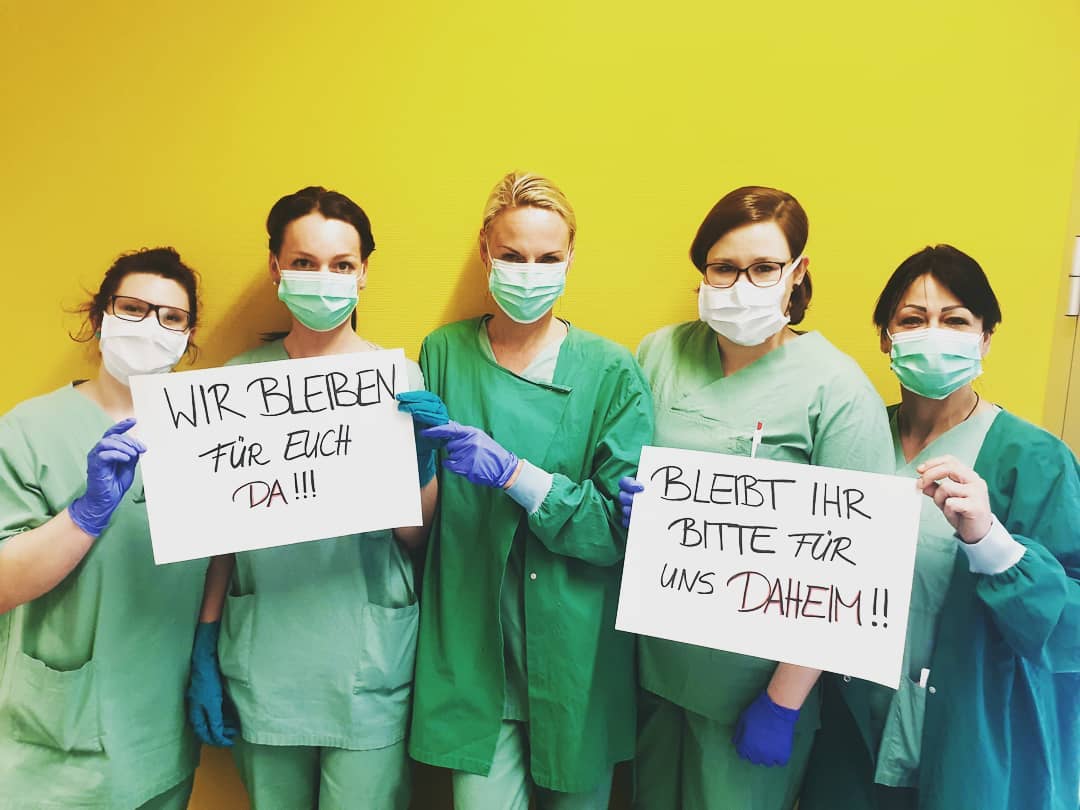
The urgent appeal of the nursing staff and the medical profession still applies: We stay in the hospital for you – you stay at home for us. Julia Braband (2nd from right) and her colleagues posted it in March when sweeping measures were taken in Germany to counter the rapidly rising numbers of COVID-19 cases. Photo: Julia Braband
The purpose of the COVID-19 isolation ward is to admit patients who are suspected of having contracted COVID-19 and of conducting diagnostic tests and examinations. The team also treats confirmed COVID-19 cases. If their condition deteriorates, for example, when they require ventilation, patients are moved to the intensive care unit.
Especially during the first few weeks, the nursing team was worried that there will not be enough protective clothing, masks, and gloves, exposing them to a higher risk of infection. The ward is separate from the rest of the hospital. “We are not allowed to leave the ward while we are on duty,” Braband notes.
Test results have become the be-all and end-all. “There is a great relief when a result is negative,” Braband reports – among both patients and staff. “Because all the patients in our ward have underlying medical conditions. It is a poignant moment each time when we can bring them this good news – they can hardly believe it.”
However, that is not always the case. And some people are dying. What goes to heart, Braband says, is that “even those who are dying are not allowed to receive visits from their relatives. They die alone.”
Holy Week and Easter fell in the middle of all this. Braband, who would otherwise have sung Bach‘s St Matthew’s Passion with her choir and attended many services of the Evangelical Church in Central Germany, contented herself with audio recordings and televised worship services. Yet she was convinced: “We are celebrating life, even if Easter is different than we usually celebrate it. He is risen indeed!”
Her colleagues in the hospital know that Braband, sustained by her faith, could also encourage and console others. Media representatives also approached her, e.g., to contribute to a series “Courage before Midnight” produced by the Central German broadcaster MDR in the coronavirus crisis. In a two-minute video, she talked about what gave her strength and where she found encouragement.
“In the evening, after work, I pray for all those who are ill, those who keep society going and those who could not see their families,” Braband said. “But I also pray that the measures taken can end as soon as possible because I am afraid that they will not do our democracy good in the long run.”
Another concern Braband has is that the pandemic will claim countless silent victims: “People who are not treated because COVID-19 treatment is taking precedence over all others,” she says. “People who suffer from mental diseases and depressions and are now left alone.” It is uncertain when the psychiatric ward, cleared to accommodate the COVID-19 isolation unit, will be available for its patients again.
Soon Braband will limit her duties at the hospital to return to her studies. From 4 May, teaching will resume at the Theological Faculty of Jena’s Friedrich Schiller University, although not on campus but using live video and online tools. Whether Braband can complete the final semester of her studies as planned and take her examinations is not yet definite. After all, the Coronavirus disease (COVID-19) pandemic is still not over, and the situation can rapidly change.
Background on the Coronavirus disease (COVID-19) pandemic in Germany
The first COVID-19 case was confirmed on 28 January; an employee of a Bavarian automotive component supplier was infected during an international training course.
On 28 April, 13 weeks after the first confirmed case, the Robert Koch Institute reported a total of 156,337 confirmed cases and 5,913 deaths in connection with a COVID-19 infection. People working in medical facilities account for 9,000 cases and 14 deaths. An estimated 117,400 people are regarded as cured.


